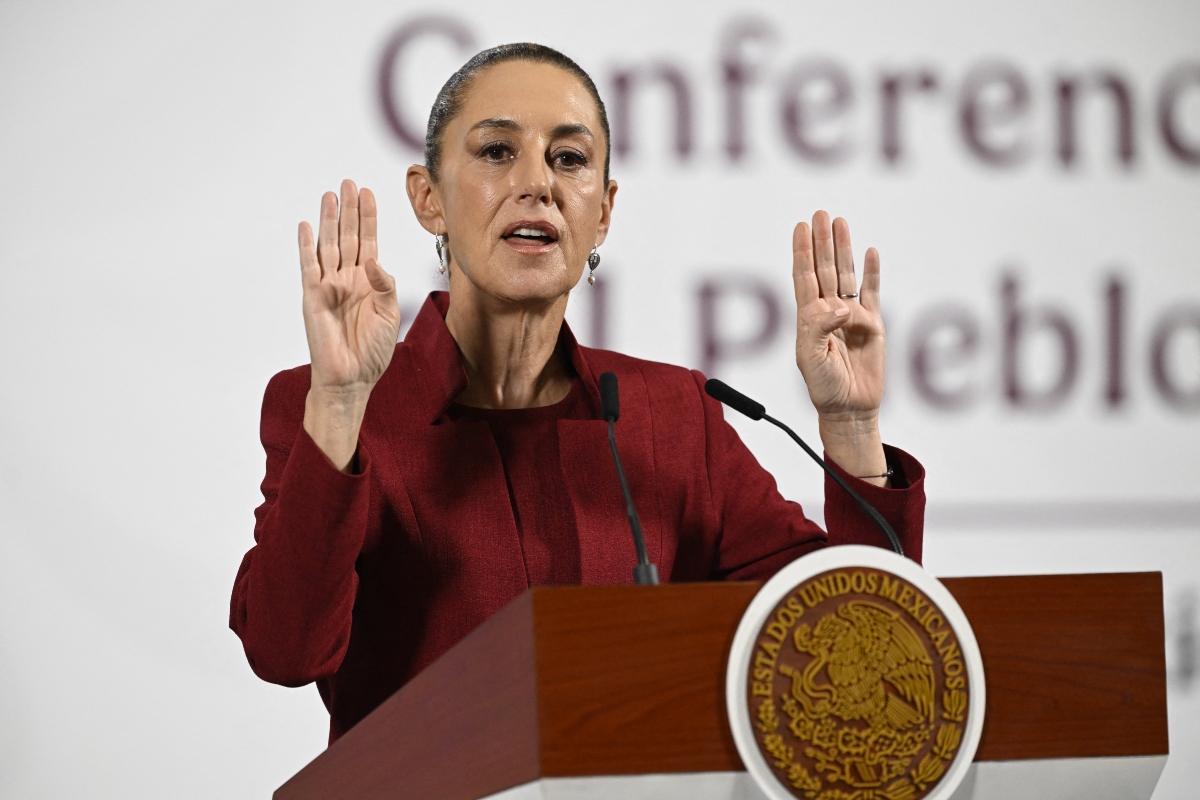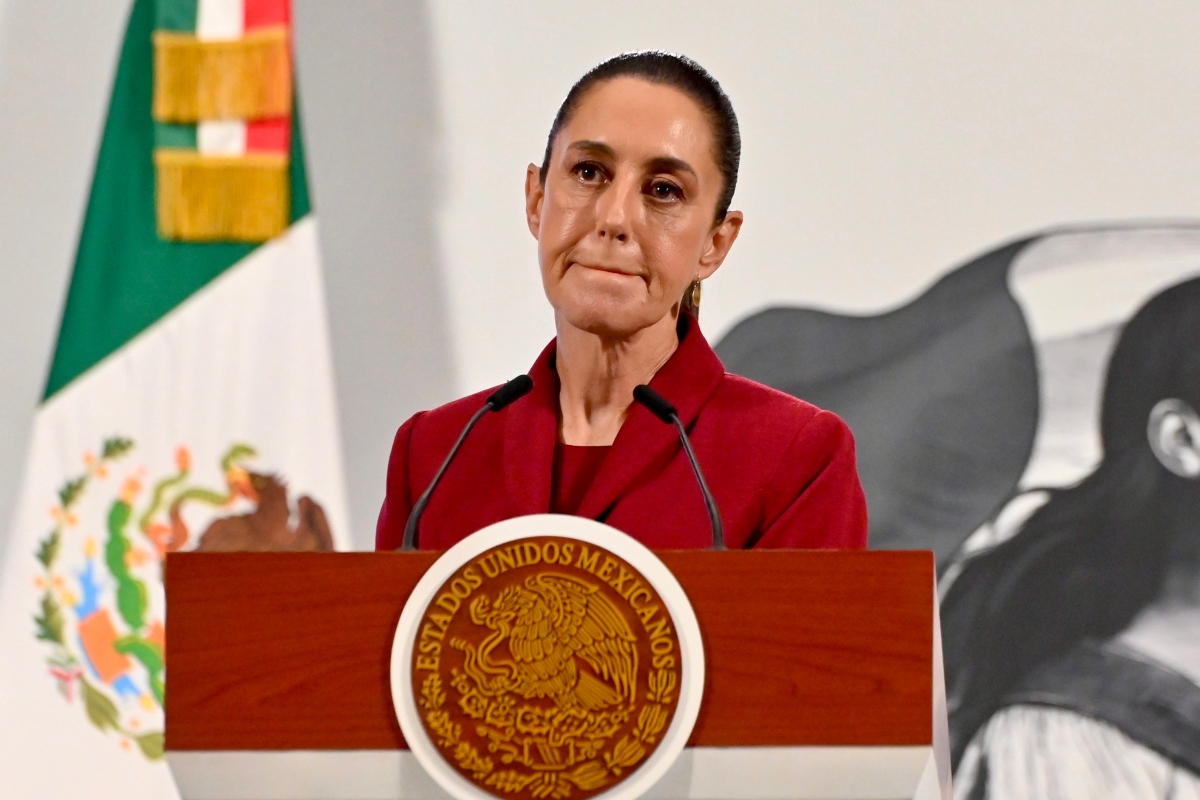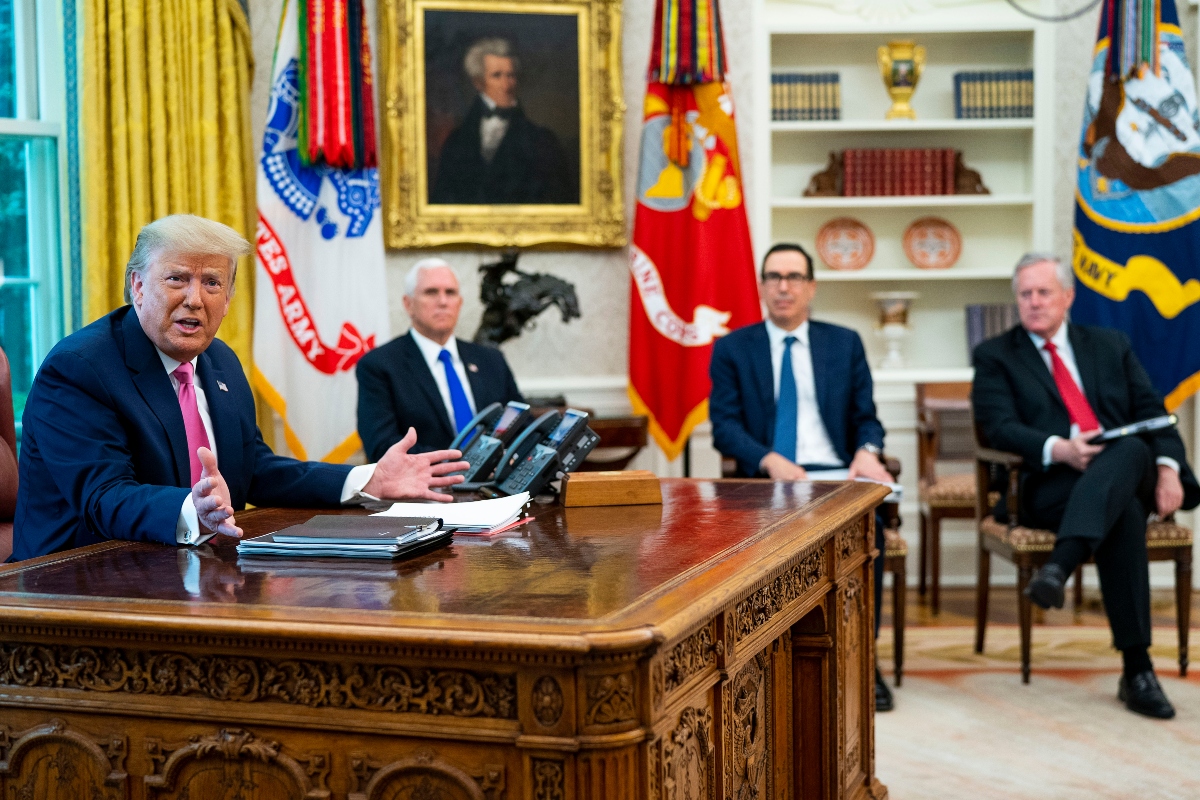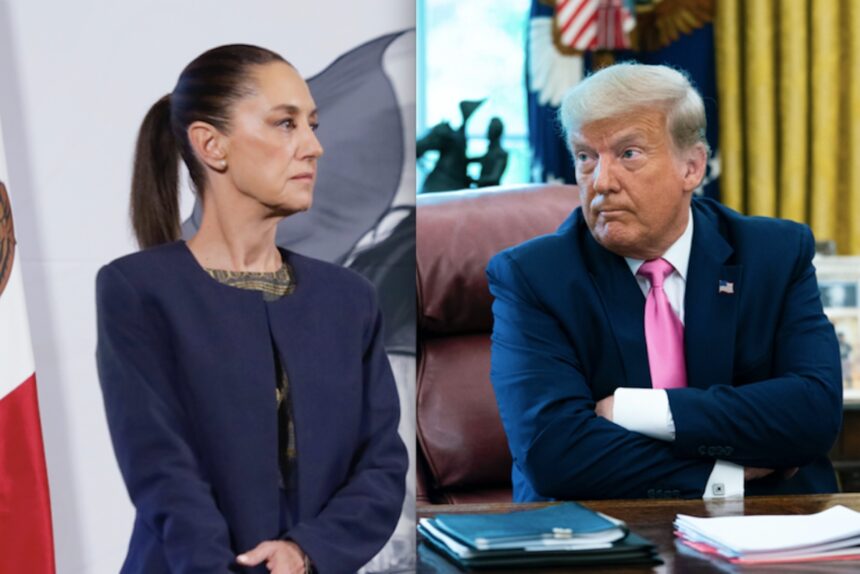Mexico’s President Claudia Sheinbaum expressed her strong disagreement with the tax plan approved by the U.S. Congress, promoted by President Donald Trump.
This plan contemplates a $170 billion budget to strengthen border security, increase deportations and expand the network of immigration detention centers, including the controversial ‘Alligator Alcatraz’ center.
U.S. tax plan: Impact on the economy

During her July 4 morning conference, Sheinbaum stated, “We do not agree with the plan. Migration must be addressed in the background with development cooperation.”
Sheinbaum warned that criminalizing migrants is not only inhumane, but could also seriously affect the U.S. economy.
He noted that thousands of Mexicans and migrants from Latin America have worked for years in essential sectors of the U.S. economy, such as agriculture and construction.
“They are good people, workers who contribute more to the U.S. economy than to Mexico’s,” she said.
In response to US immigration policies, Sheinbaum announced the strengthening of the ‘México Te Abraza’ program, which provides comprehensive care to deported people, especially in cities such as Tapachula and Villahermosa.
In addition, the Mexican consular network will be strengthened to offer legal support and humanitarian assistance to Mexican nationals detained or deported from the United States.
Mexican President criticizes US tax plan

The president demanded the immediate repatriation of Mexicans detained in the ‘Alligator Alcatraz’ detention center in Florida, recently inaugurated by Donald Trump.
Compared to Guantanamo, the center has generated controversy for its inhumane conditions and isolated location in the Everglades wetlands, surrounded by crocodiles.
Sheinbaum revealed that she proposed to President Trump a “comprehensive agreement” covering security, migration and trade, with a special focus on recognizing and protecting Mexicans living in U.S. territory.
This proposal was discussed during a 20-minute phone call after Trump withdrew early from the G-7 summit in Canada, preventing a face-to-face meeting between the two.
Economic measures to mitigate impacts

In view of the 1% tax that the U.S. Senate is about to approve on remittances sent in cash by Mexican migrants, Sheinbaum announced that her government will reimburse such tax through the government entity Financiera del Bienestar (Finabien), applying only if remittances are channeled through that institution.
He also stressed that “Plan Mexico” seeks to strengthen national production for domestic consumption and promote the attraction of export companies, highlighting that Mexico retains competitive advantages over countries such as Vietnam in terms of tariffs, thanks to the Treaty between Mexico, the United States and Canada (T-MEC).
Claudia Sheinbaum enfatizó la necesidad de abordar la migración desde una perspectiva regional, impulsando la cooperación y el desarrollo en Centroamérica y Sudamérica
Call for regional cooperation
The President of Mexico stressed that migration does not occur by choice, but by necessity, and that people seek employment, security and a dignified life.
In this context, he proposed to organize a meeting of Latin American and Caribbean foreign ministers to coordinate efforts to face the migratory challenges posed by the arrival of Donald Trump as president of the United States.
Sheinbaum’s stance reflects Mexico’s commitment to defending the rights of migrants and seeking comprehensive and humanitarian solutions to the migration and economic challenges in the region.
Here is the video of what the President of Mexico said about the US tax plan.
Find out more at ‘QueOnnda.com’.














